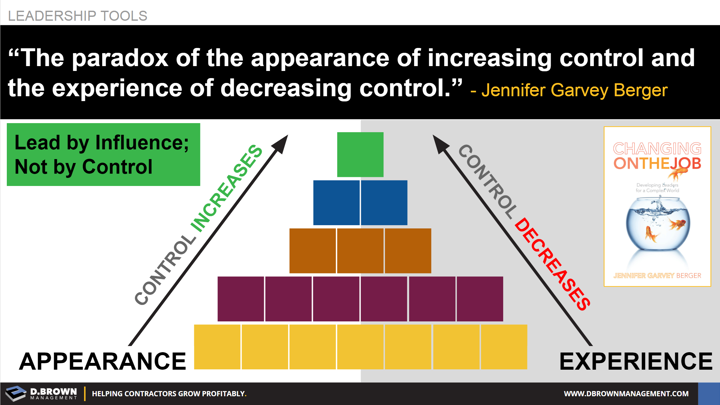Read more in her excellent book on leadership development.
When you are developing organizational structures for leadership development, planning your 2X structure, or preparing your leadership team for succession, it is critical to coach and mentor people through these different levels of management.
Basically, each level of work from the front-line through the CEO requires a shift in two areas, though there is always a balance:
- Less direct control over your team and more of a focus on leading through influence toward a common vision.
- Less reliance on hard technical skills and more of a reliance on soft skills, beliefs, and behaviors
Your leadership focus must evolve though this pyramid as your career and company grows. This growth isn't linear, and you will often find yourself moving throughout the pyramid based on the stage of growth that the company or your team is in.
When the growth of the business and the people get too far out of alignment, it can cause a variety of problems and ultimately show up on the scoreboard. These are the normal cycles of business growth.

